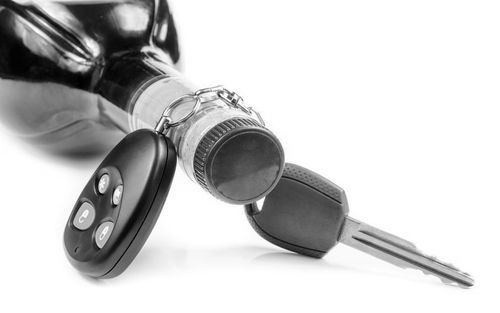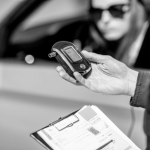You, as devoted fans to this blog, likely remember that a while back I wrote a blog about your limited statutory right to speak with an attorney in North Dakota. It is only fair that I follow up with an article for all of the folks on the other side of the river. So, you get arrested for DWI in Minnesota. At the jail, you’ve been read a long list of statements and questions, known as the Minnesota Implied Consent Advisory. Part of that advisory informs you of your right to speak with an attorney prior to deciding whether to take the test or not, so long as it does not materially interfere with the testing process. It’s late, almost 3:00 a.m., no lawyer is available, and you think to yourself, “Is it even worth the bother?” Here is the law; you decide.
Your Right To Speak To An Attorney In Minnesota
Under the Minnesota Constitution, you have a limited right to consult with counsel before deciding whether to submit to a post-arrest chemical test. In fact, law enforcement officers are required to inform you of this right and ask you if you wish to speak with an attorney prior to asking you to submit to the test. The Minnesota Supreme Court has repeatedly held that your limited right to speak with an attorney is “vindicated” if you are provided with a telephone prior to testing and given a reasonable time to contact (or attempt to contact) and talk with counsel.
“Reasonableness” is determined by the totality of the circumstances. A court is required to weigh (1) the importance to the driver (you) of the decision to submit to testing; (2) the purpose of the right to counsel, which is to protect laypersons who lack skill and knowledge to defend themselves; (3) the diver’s (your) rights, which should not unreasonably interfere with law enforcement’s ability to gather evanescent (vanishing) evidence; (4) the legislative intent to coerce drivers into taking the test; (5) the liberal interpretation of the implied consent law in favor of the public interest; and (6) the need to return police to the streets to serve the public. In cases where individuals are actively attempting to contact an attorney, Minnesota courts have found that in most circumstances, less than 25 minutes is not a reasonable period of time.
What Is The Remedy If My Right To Counsel Is Denied?
The Minnesota Court of Appeals has established that test results obtained in violation of a driver’s limited right to counsel must be suppressed as evidence in a subsequent DWI proceeding. In other words, if you are read the implied consent advisory, but are not given reasonable time to contact an attorney, your subsequent test results cannot be presented at trial. Furthermore, the Court has established in DWI refusal cases, that dismissal is the appropriate remedy for violations of individuals’ limited right to counsel. The Minnesota Commissioner of Public Safety also cannot take away your driving privileges if your right to counsel was not vindicated by the law enforcement officer.
In Conclusion
You have a right to speak with an attorney in Minnesota once you are asked to submit to a post-arrest chemical test. There are no negative consequences if you invoke this right. In fact, speaking with an attorney prior to testing is encouraged. If you are ever in this position, invoking this right may greatly assist you in making the right decision regarding testing.
If you have a criminal issue in Minnesota, including DWI, please do not hesitate to call SW&L Attorneys in Fargo at 701-297-2890. This article is only meant to provide general information and does not constitute legal advice.










